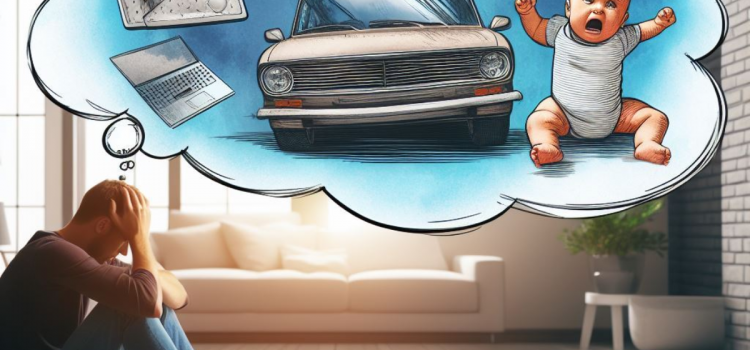
Do you experience both anxiety and procrastination? Did you know they might be closely related to each other?
Ali Abdaal says that people tend to put off doing things—even things they want to do—when they’re worried about what the outcome might be. For example, people are often hesitant about starting a new hobby because they’re worried about looking foolish in front of more experienced hobbyists.
Check out how anxiety can turn into procrastination.
How Anxiety Causes Procrastination
Abdaal points out that there’s no way to completely get rid of your anxiety and procrastination tendencies, but there are a few things you can do to help yourself work through it.
The first step is to identify your anxiety: What, specifically, are you afraid is going to happen? To continue the above example, someone who’s new to a hobby might be anxious about other people making fun of their lack of knowledge or skill.
(Shortform note: We previously discussed how feel-good productivity takes advantage of our evolved traits: the behaviors and abilities that helped our distant ancestors survive. Unfortunately, the human tendency to imagine the worst is also an evolved trait. As biologist Richard Dawkins explains in The Selfish Gene, imagination has helped animals (including ancient humans) stay alive by allowing them to predict danger. For example, an animal doesn’t have to jump off a cliff to understand that long falls are dangerous, because it can imagine the results without experiencing them. However, in our relatively safe modern world, imagination often backfires—it warns us we’re in danger when we really aren’t.)
The second step, says Abdaal, is to assess your anxiety. This means asking yourself whether your anxiety is a reasonable response to something that’s probably not that big of a deal. Abdaal suggests considering, if the thing you’re worried about does happen, how bad will it really be? If someone does make fun of that new hobbyist, will it still matter the next day, the next month, or the next year? If something won’t matter in the long run, then it’s not worth worrying about.
(Shortform note: When thinking about your worst-case scenario, planning out how you’ll handle that situation may also help to ease your anxiety. That’s why, in How to Stop Worrying and Start Living, Dale Carnegie suggests planning for the worst. His reasoning is that, if you figure out the worst thing that could happen and make a plan to deal with it, then there’s no reason to worry anymore—it’s likely that things will work out better than you expected, but if not, you’ll simply use the strategy you already came up with. To continue with the example of the hobbyist, if they find that their local group is unwelcoming and toxic, they can make a plan to leave early and find a friendlier group of people to enjoy their new hobby with.)
Abdaal says that, once you’ve finished those two steps, all that remains is to face your anxiety. With a clear idea of what you’re concerned about, and how reasonable that concern really is, you’re as prepared as you can be to get started.
(Shortform note: Abdaal discusses ways to intellectually work through your worries, but it’s helpful to physically relax as well. Taking a few minutes to practice deep breathing exercises, yoga, or meditation will help you feel calm and centered so that you can face your fears more readily.)






